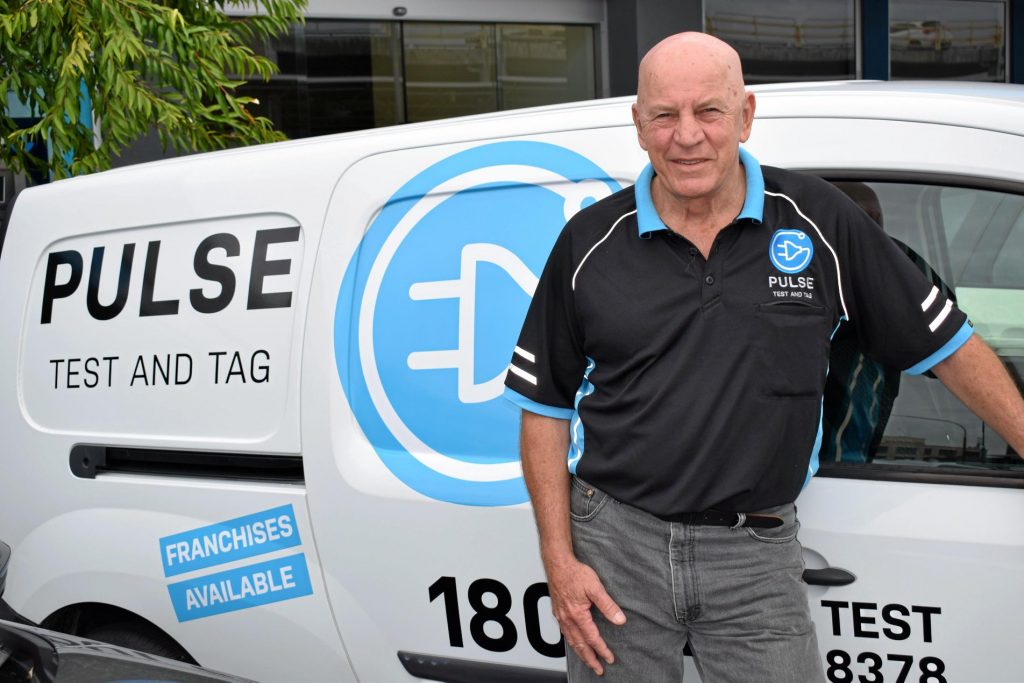Testing & Tagging Adelaide

Pulse Test And Tag Adelaide will come to you at a industry competitive rate! For a prompt, professional service guaranteed call us or use our online enquiry form today. Our call centre is open 24 hours a day, 7 days a week.
Welcome to Pulse Test And Tag Adelaide. We have a 100% customer satisfaction focus and we can be contacted directly by calling 18004ATEST.
All work is completely guaranteed to meet your high standards.
Testing and Tagging, using the latest equipment, has the potential to reduce serious injury or death within the workplace.
Business is now required to ensure that all appliances are tested and tagged for safety compliance. The client is provided with a computer generated report detailing the appliances tested and the test results.

What do I need to Test and Tag to be compliant in Adelaide, South Australia?
Air Compressors
Phone Chargers
All Appliances
Computers
Drills
Extension Leads
Fans
Fork Lift Chargers
Grinders
Microwave
Audio & Visual
Photocopiers
Portable electric motors / machinery
RCD – Safety switches
3 Phase Equipment
Plus More
Pulse Test and Tag will perform the necessary procedures and examinations as Required:
External Inspection of equipment
Inspecting the equipment for any signs of damage, defects, wear, or modifications.Examining plugs/connectors for discoloration and wear, which may indicate excessive heat, loose electrical connections, or exposure to chemicals or moisture.
Protective Earth Continuity Test
Verifying that the resistance is at an adequately low level to guarantee the proper functioning of the equipment.
Insulation Test
Conducting assessments on the insulation resistance of the device to measure and evaluate leakage current.
Polarity
Verifying the accurate completion of equipment wiring; it's not unusual to observe instances where the neutral and live conductors are mistakenly reversed.
Frequently Asked Questions
As an employer, you bear the responsibility of safeguarding the well-being of both employees and visitors within the workplace, ensuring their safety from potential injuries and health risks. In adherence to the OHS and WHS Acts and regulations across Australia, it is imperative to proactively address safety risks associated with electrical hazards. Adopting a systematic risk management approach becomes essential to either eliminate or effectively control these electrical hazards. Following a comprehensive risk assessment, you can proceed to implement a variety of control measures, including:
- routine visual checks
- regular inspection
- maintenance
- repair
- replacement
- use of residual current devices (RCDs)
- and, testing of identified electrical equipment.
Occasionally, a piece of equipment may experience a failure, placing the onus on the technician to promptly report the defective item and appropriately label it. Such items are removed from active use, and, based on the nature of the fault, additional testing or necessary repairs are undertaken to address and rectify the issue.
A Portable Appliance Tester (PAT) is a specialized electronic testing device crafted to execute a series of automated tests on electrical equipment that features plug-in capabilities, in accordance with the specifications outlined in AS/NZS 3760:2022.
Indeed, they do. It poses an electrical hazard for the equipment to remain live during testing. This precaution is taken to guarantee the safety of both our operators and customers. Following the completion of the assessment, the equipment can then be reactivated.
An RCD, or Residual Current Device, is specifically engineered to shield against the risk of a fatal electric shock in the event of contact with a live item, such as an exposed cable or a damaged light switch. Unlike standard fuses or circuit breakers, RCDs provide an enhanced level of personal protection.
The duration for testing and tagging varies based on the particular appliance undergoing examination, but generally, each session should only consume a few minutes. The initial step involves a visual inspection of the appliance, guiding the technician in determining the appropriate electrical tests to be conducted. Certain appliances necessitate multiple tests before being officially labeled as safe and meeting the required standards.


